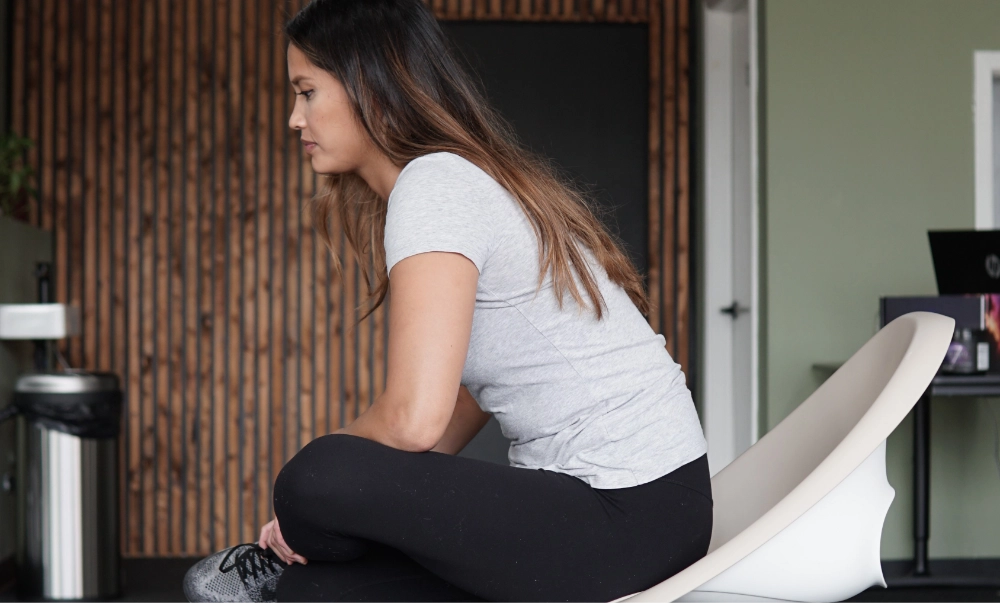
The human body is designed to be upright. In that manner, your heart and cardiovascular system are more efficient. When you are upright, your bowels also work more efficiently. Patients in hospitals who are bedridden often have issues with bowel movements. People of all ages can be affected by prolonged sitting. Most Americans spend more than six hours a day sitting or lying down. Spending too much time sitting down is detrimental to your health, whether you’re doing it at a desk or in front of the television. The average American spends more than eight hours a day sitting, while office workers spend up to 15 hours a day sitting. There has been an 88% increase in the number of sedentary jobs since the 1950s.
On the other hand, physical activity increases your general vitality and endurance while also maintaining the strength of your bones.
What are the most significant risks of prolonged sitting, and why are they bad for your health?
Long periods of sitting increase your risk of premature death from any cause. Studies have found a correlation between prolonged amounts of leisure sitting and an increased risk of death (1). It doesn’t matter if you exercise every day if you’re spending most of the day sitting. Your powerful leg muscles will not support you while sitting all day. It results in muscular atrophy, which weakens the muscles. You risk injuring yourself without solid leg and glute muscles to keep you stable.
Additionally, prolonged sitting tightens your anterior (or front) muscles, especially the pectoralis, upper traps, and anterior scalenes, disrupting your posture. Sitting for extended periods puts a lot of tension on your back and paraspinal muscles. If you continue to sit down for a long time, it may also result in your lumbar spine straightening, thus causing low back pain.
Long-term muscular deconditioning that lowers muscle activity and flattens the lumbar-lordotic curve also affects prolonged sitting. Adopting a static posture for an extended period might result in muscular exhaustion even at low loads. (2)
Did you know those who sit often have a higher risk of anxiety and depression?
Several chemicals, including endorphins and serotonin, are released during workouts. These hormones help to increase mood, cognition, and concentration naturally. Exercise is a well-known natural treatment for depression, as these hormones improve mood without pharmaceuticals.
Deep vein thrombosis (DVT) is a blood clot that develops in your leg, usually due to sitting or immobility for an extended period. It can be fatal if the clot manages to escape and deposits in your lung. Some people have swelling and pain, but others do not. That is why it is advisable to cut ties with long sitting activities.
Long durations of sitting can strain your back and neck. Because the head and neck muscles are in close contact, any strain on the neck can induce tension, which can lead to headaches.
The majority of office workers spend their days seated. Their posture may sag during this time, causing shoulder or neck pain, and may cause positional headaches, which often cause pain at the base of the skull.
Sitting can negatively affect your hip and leg muscles, putting you at risk for joint disorders. It is possible to get back problems if you sit for a long time in the wrong position or don’t have an ergonomically correct chair or workspace. Your back muscles, shoulders, and spine are put under a lot of strain when seated for long periods. Chronic discomfort can be caused by bad posture while sitting, which compresses discs in your spine and can result in early degeneration. Try to get some movement every half-hour to keep your spine and joints mobile. Motion is lotion!
People of all ages benefit from physical therapy when they have ailments, injuries, or medical conditions impair their normal range of motion and functioning. A personalized physical therapy program can assist patients in regaining their previous functional status. It can promote activities and lifestyle modifications that enhance general health and well-being, reduce the risk of further injuries, and help avoid obesity.
References:
1- American Journal of Epidemiology
Subscribe to Receive More Info on How to Stay Healthy!
All information on this website is intended for instruction and informational purposes only. The authors are not responsible for any harm or injury that may result. Significant injury risk is possible if you do not follow due diligence and seek suitable professional advice about your injury. No guarantees of specific results are expressly made or implied on this website.
© unifypt.com | All rights reserved